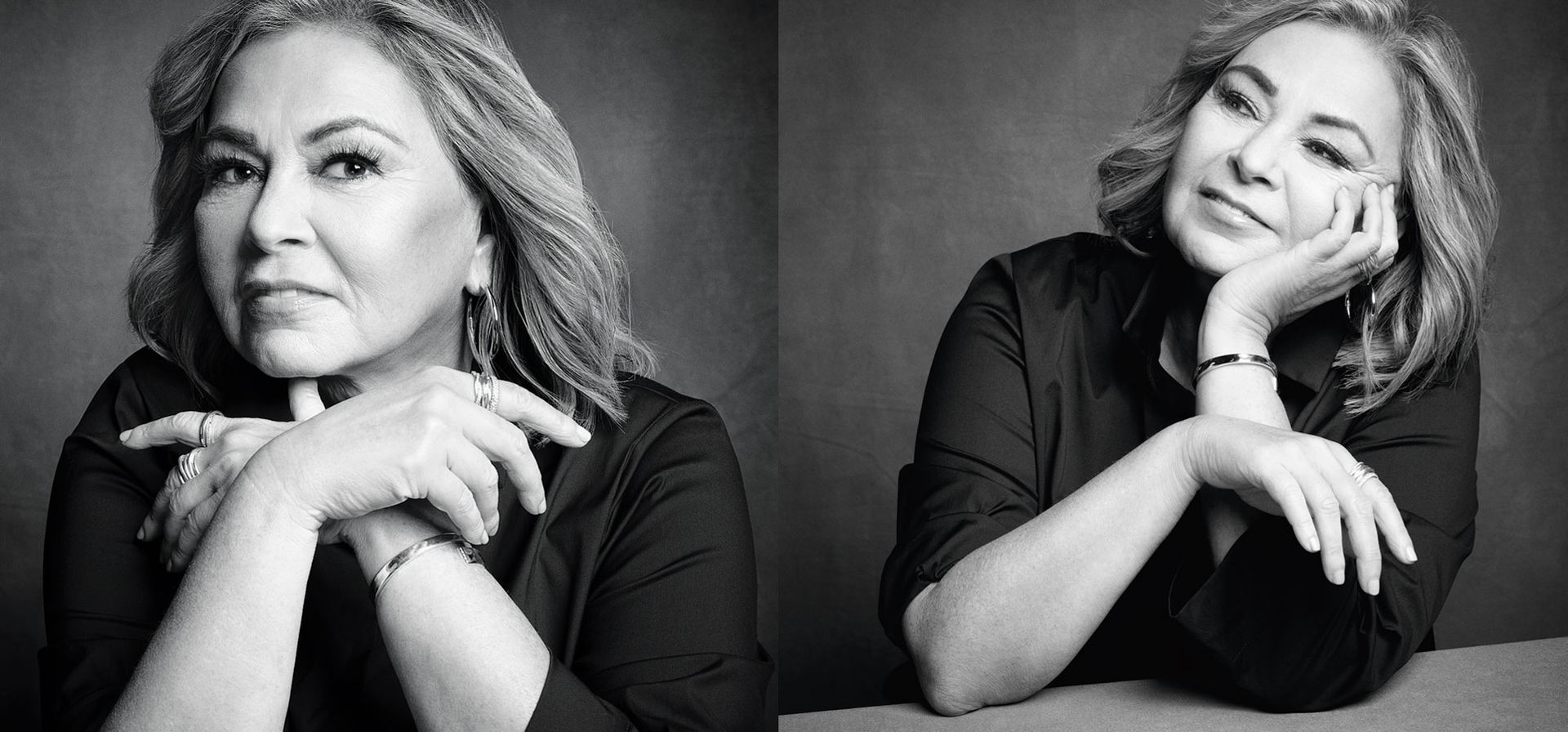
ABC’s reboot has been a ratings bonanza, and yet another front in the current culture wars. How did both its namesake and her TV alter ego go from progressive antiheroines to troublemakers? Let Roseanne Barr explain.
If I hadn’t been waiting to interview her, I might not have recognized the blonde standing before me in a tailored dark-gray blazer and blue velvet loafers as Roseanne Barr, the pop-cultural provocateur whose recent return to TV felt like a bomb detonating in prime time.
The original incarnation of Roseanne had embedded itself in TV history as both a comforting classic and a renegade force. Feminist, class-conscious, and L.G.B.T.Q.-friendly, it helped expand our notion of “family values” in an era when that phrase was being colonized by the religious right. The Conners were a hardworking, unsentimental bunch—rarely had such an abrasive female voice been at the center of a sitcom—yet the show radiated joy and affection.
It was hard to square the elegantly dressed woman who walked into the room with the blue-collar icon who occupies a well-grooved sofa in the popular imagination, and harder still to figure in Barr’s current status as a vocal Trump supporter.
Translating Roseanne’s legacy for a 21st-century audience was always going to be ridiculously tricky (not to mention potentially very lucrative). Could those characters be reanimated in the polarized time of Trump? The simple answer seemed to be yes, with 18.45 million people tuning in live (or the same day) to ABC for Roseanne’s March premiere—27.26 million if you included people watching on various platforms over the course of its first week. They were the highest overall numbers for any comedy telecast in more than four years. The series once again dominated the cultural conversation, sometimes in deeply uncomfortable ways. Many fans who remembered Barr as a progressive figure felt betrayed by her personal allegiance to our Divider in Chief, and by fictional alter ego Roseanne Conner’s transformation into a die-hard Trumpist.
“I wanted that voice [of the Trump voter] in there, and then I thought, Well, it should be me,” Barr says in her familiar nasal drawl.
We’re sitting in the front room of her production studio, situated in a suburban Los Angeles beach town. Barr’s son Jake Pentland runs the place, and when he mentions that he’s leaving the front door unlocked while we do our interview, she looks alarmed and says she was recently chased on a Manhattan street after an appearance on The Tonight Show.
“I have my gun,” Pentland says lightly on his way out of the room.
“Do you really have it?” Barr asks, turning her neck sharply to look at him. “I hope you have it!”
I can’t help wondering if Barr is trolling the visiting representative of the mainstream media (i.e., me), especially after she points out that some of the humor in the new incarnation of Roseanne comes from friction between herself and the show’s more liberal writers.
“I’d go: ‘I have a gun. I love to shoot my guns. I have wild pigs all over my farm. I’m not gonna let pigs eat my grandkids!’” she says with a chuckle. “Sometimes I do it just to see their faces.” (As a comedian, she adds later, “You like to push people’s buttons and see how phony they are while they’re talking about tolerance and acceptance.”)
Barr says the political discord in her on-screen family (sister Jackie is a Hillary Clinton supporter in a pussy hat) is nothing compared with the situation off-camera. “My own family is completely divided over it,” she says, and any attempts to discuss current events result in “screaming, crying.”
“It’s way worse than we had on the show,” she says.
